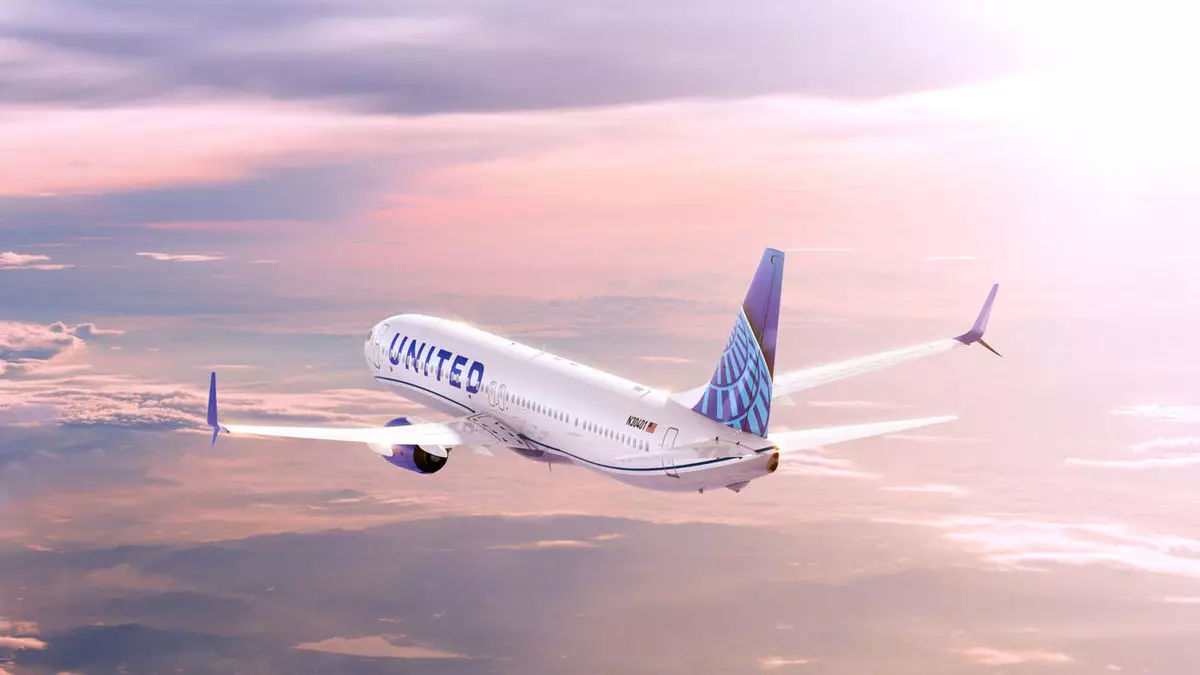The impending May 7 launch of Real ID enforcement at TSA security checkpoints has put United Airlines in a precarious position. Chief Commercial Officer Andrew Nocella’s candid remarks during United’s recent Q1 earnings call emphasize the airline’s anxiety about the initiative. While it is founded on a well-meaning aim to enhance security, the swift rollout raises pressing concerns about potential disruptions at airports. Nocella’s candid wish that the date be postponed reflects the broader apprehensions within the airline industry regarding customer readiness and its implications for revenue. With 81% of passengers presenting the correct forms of identification, the reality remains that a significant minority could face complications which, in turn, would lead to considerable inconveniences for United and other airlines alike.
The TSA’s decision to forego a phased implementation signifies a firm and potentially risky stance. The immediate impact could be a substantial number of travelers being turned away or requiring additional verification — a scenario not only distressing for passengers but detrimental to airlines striving to maximize loaded seats and maintain profitability. A united front from airlines in lobbying for a more gradual rollout might provide some leverage to mitigate the fallout and ensure smoother transitions across the industry.
International Bookings: Mixed Signals Amid Recovery Hopes
In the context of international travel, United Airlines is witnessing a juxtaposition of opportunities and challenges. While there have been declines in origin bookings from Canada and Europe—recorded at 9% and 6% respectively—domestic demand remains a solid backbone of their international business, contributing a staggering 80% of bookings. Nocella’s reassurance that demand for routes to Asia thrives amid this turbulence is a silver lining, illuminating resilience in a sector that has faced unprecedented trials.
However, the reference to “completely false” booking figures circulated in the media speaks volumes about the scrutiny and misinformation surrounding the airline industry’s recovery trajectory. It underscores the importance of accurate data in shaping perceptions and strategies, highlighting the essential need for airlines like United to provide customers with clear, truthful insights. As travel patterns continue to fluctuate, vigilance in safeguarding accurate data is paramount for maintaining both public confidence and investor faith.
Domestic Market Struggles: An Adaptable Approach
Despite strong international demand, the domestic sector is where United faces tangible struggles. With a noted drop in domestic load factors, down to 80.3% in Q1, it is clear that the airline must adapt quickly to shifting consumer behaviors. The 4% reduction in domestic flying, particularly during peak hours, suggests a strategic pivot to preserve resources and enhance operational efficiency. This move is indicative of a broader trend within the airline industry—a recognition that demand is volatile, and agility is key for survival.
Nocella’s announcement of increased inventory for basic economy fares as a response to weakening domestic demand reveals an insightful grasp of market dynamics. By catering to more price-sensitive travelers, United aims to mitigate the impact of fluctuating load factors while still ensuring a steady flow of revenue. This flexible pricing strategy exhibits resilience and understanding of market psychology. United’s approach could serve as a model for other carriers navigating similar headwinds, demonstrating that thoughtful adaptations can foster competitiveness even in challenging environments.
A Path Forward: Innovation and Engagement
Engagement with passengers will be crucial as United Airlines moves forward. The emphasis on customer communication regarding Real ID compliance indicates an understanding that preparedness is essential to avoid chaos on May 7. Clear messaging and proactive measures—such as reminders and informational campaigns—can play a significant role in ensuring travelers are equipped for their journeys. United’s readiness to address government concerns suggests a forward-thinking mindset that is vital in maintaining relations with regulatory bodies, ultimately contributing to enhanced operational frameworks.
As the company navigates international uncertainties mixed with domestic struggle, the outlook for United Airlines is complex. The ability to pivot in response to emergent data, maintain customer loyalty, and drive demand through innovative approaches will determine its success in the ever-evolving landscape of the airline industry. Balancing optimism with strategic foresight will be key, as will the ability to cultivate a responsive and informed customer base that can endure the complexities of contemporary travel.


Leave a Reply